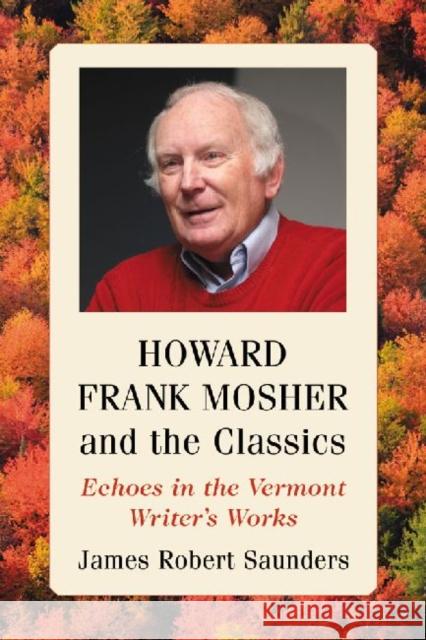Howard Frank Mosher and the Classics: Echoes in the Vermont Writer's Works » książka
Howard Frank Mosher and the Classics: Echoes in the Vermont Writer's Works
ISBN-13: 9780786478569 / Angielski / Miękka / 2014 / 208 str.
This book draws connections between Vermont author Howard Frank Mosher and specific works of classic literature. Chapter I explores the horrors of the Civil War as conveyed in Mosher's Walking to Gatlinburg and Stephen Crane's The Red Badge of Courage. Major characters, in those works, escape the battlefield and then, later, feel the need to redeem themselves for what could be considered a cowardly act. Chapter II is an analysis of how Mosher and three classic authors explore industrialization's presentation of certain physical and moral dangers, especially with regard to women's safety. Chapter III compares Mosher's Walking to Gatlinburg to John Bunyan's The Pilgrim's Progress in terms of the quest for biblical Heaven. In Chapter IV, I use Herman Melville's novels Moby-Dick and Billy Budd to address the issue of evil as it appears in Mosher's Disappearances. Chapter V explores the black man/white woman paradigm as it appears in Harper Lee's To Kill a Mockingbird and Mosher's A Stranger in the Kingdom. Humor is at the core of my Chapter VI, where I compare Mark Twain's Huckleberry Finn to Mosher's The True Account. In Chapter VII, the disappearing wilderness is a primary issue as I examine William Faulkner's Go Down, Moses and several of Mosher's works. Chapter VIII offers a couple's romantic love as an effective shield against the varied assaults of other human beings. In my conclusion, I draw on John Steinbeck's Travels with Charley and Mark Twain's The Innocents Abroad to assist in my analysis of Mosher's The Great Northern Express as I elaborate on how one should explore as much of the world as possible, especially as the world concerns everyday people whose lives are a virtual repository of intriguing details that can, at times, spur the writer's creative impulse.











